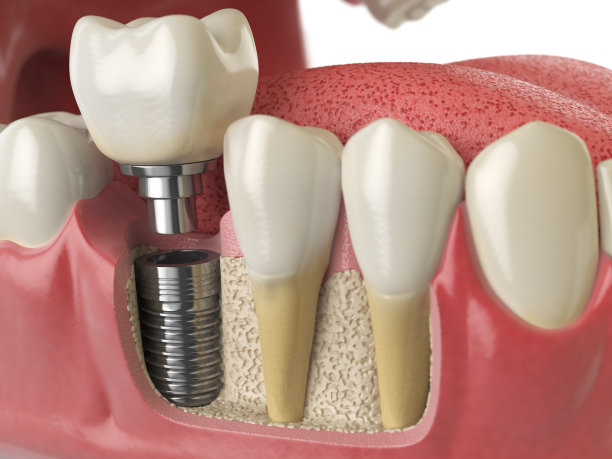Summary: Dental implantation is a significant procedure for restoring missing teeth and enhancing overall oral health. To ensure optimal success and recovery, there are essential guidelines that every patient should consider. This article explores four critical aspects: comprehensive dental evaluation, the surgical procedure, post-operative care, and lifestyle adjustments. Each of these elements plays a vital role in not only the immediate success of the implantation but also in the long-term sustainability of the dental implant. By following these guidelines, patients can enhance the likelihood of a successful outcome while ensuring a smoother recovery process.
1. Importance of Comprehensive Dental Evaluation

Before considering dental implantation, a thorough dental evaluation is crucial. This evaluation typically includes diagnostic imaging and a detailed examination of the patients oral health. The dentist assesses the quality and quantity of the jawbone to determine if it can support the implant. Any underlying dental issues, such as gum disease or cavities, should be treated prior to the procedure, as they can affect the success of the implant.
Furthermore, a comprehensive evaluation helps establish the patients overall health. Certain medical conditions, such as diabetes or heart disease, can impact the healing process. Understanding these factors enables the dentist to tailor a personalized treatment plan that addresses individual needs and potential risks.
In addition, discussing medication use is vital during the evaluation phase. Some medications may hinder proper healing post-surgery, so a clear understanding of the patient’s pharmaceutical history ensures the best possible outcome.
2. Understanding the Surgical Procedure
The surgical procedure for dental implantation is pivotal to the entire process. It typically involves the placement of a titanium post into the jawbone, which serves as an anchor for the artificial tooth. Awareness of the steps involved can alleviate patient anxiety and help manage expectations.
Patients should be informed about anesthesia options, which range from local anesthesia to sedation, depending on the complexity of the procedure and the patient’s comfort level. A clear understanding of these options can significantly enhance the patient’s experience.
During the procedure, various techniques might be employed, such as bone grafting or sinus lifting, if there is insufficient bone structure. These techniques further complicate the surgery and require extensive preparation, making it essential for patients to have realistic expectations regarding recovery time and outcomes.
3. Post-Operative Care Guidelines
Post-operative care is essential for the successful recovery of dental implants. Patients must adhere to specific guidelines to promote healing and prevent complications. Initially, rest is vital in the first few days following surgery, as it allows the body to start the healing process effectively. Patients should limit physical activities, especially those that strain the jaw.
Moreover, proper oral hygiene habits must be maintained post-surgery. Gentle brushing and rinsing with saltwater can help to keep the surgical site clean while avoiding irritation. Patients should also attend follow-up appointments for adjustments and to monitor the healing process.
Lastly, its crucial for patients to watch for signs of complications, such as excessive pain, swelling, or discharge. Recognizing these symptoms early can lead to timelier interventions, ensuring a favorable healing trajectory.
4. Lifestyle Adjustments for Successful Healing
Lifestyle choices significantly affect the success of dental implants. It is advisable for patients to avoid smoking and excessive alcohol consumption, as these habits can impair healing. Nicotine reduces blood flow to the gums and slows down recovery, often leading to implant failure.
A balanced diet rich in vitamins and minerals is paramount during the recovery phase. Nutrients such as calcium and vitamin D are integral for bone health and can facilitate a swifter recovery. Patients should focus on consuming whole foods that support tissue regeneration.
Additionally, stress management plays a crucial role in recovery. High-stress levels can lead to bruxism (teeth grinding) and complications post-surgery. Engaging in relaxation techniques, such as yoga or meditation, can contribute to overall well-being and promote easier healing.
Summary:
The guidelines discussed in this article emphasize the importance of thorough dental evaluations, a clear understanding of the surgical process, diligent post-operative care, and mindful lifestyle adjustments. By taking these steps, patients can increase the likelihood of successful dental implant outcomes and improve their overall recovery experiences.
This article is compiled by Vickong Dental and the content is for reference only
Vickong Dental
Vickong Dental is a large medical group established in Hong Kong in 2008 by professors from well-known medical universities in Guangdong and Hong Kong, as well as medical doctors from key national '985' universities (including Master's supervisors and senior professors). The chain of branches brings together expert dentists with PhDs and Master's degrees from Hong Kong and Mainland China, committed to providing high-quality dental treatment.
"Vickong Dental Practices the University Motto of 'Healing and Serving Society,' with a Stable Operation for Sixteen Years. It Has Been honored with Hong Kong Enterprise Leaders's Choice,' and is a Global Trusted Implant Center for the Nobel Implant System. Recommended by Hong Kong Metro Broadcast and Guangdong Television, it Serves Customers from Over Thirty Countries and Regions, Gaining the Trust and Favor of Citizens from the Guangdong-Hong Kong-Macau Greater Bay Area and Surrounding Cities.

Thousands of customers' unanimous praise
The most recognized and highly recommended dental service by customers in the Guangdong-Hong Kong-Macau Greater Bay Area
We Ensure You Receive Detailed Care and Attention Here
Hong Kong standards, Shenzhen prices, Your Trusted English-speaking dentists

Vickong Dental Medical-Grade Instrument Disinfection Process
Vickong Dental Medical-Grade Instrument Disinfection Process

Vickong Dental Chain: A Warm and Comfortable Environment for Treatment






Appointment Hours

Q&A
Why choose Vickong Dental?
Vickong Dental practices the university motto 「Medicine to Benefit Society」, with each branch bringing together highly qualified dentists with doctoral and master’s degrees from Hong Kong and the Mainland, and has maintained seventeen years of steady operation。Recipient of 「2024 Hong Kong Enterprise Leaders Brand」, 「2025 Hong Kong Enterprise Leaders Brand」, a Nobel Biocare Global Trusted Implant Center, and a brand recommended by Metro Radio Hong Kong and Guangdong TV。
To date, we have served customers from more than thirty countries and regions,earning exceptionally high word-of-mouth recognition and trusted recommendations from residents across the Guangdong-Hong Kong-Macao Greater Bay Area and surrounding cities
We have eight major branches in Zhuhai、Shenzhen,and a consultation and service assurance center in Hong Kong,so you can book a free consultation at any time for any questions,which is very reassuring.
If I do not accept the quotation after the CT scan, will I be charged??
No! As long as the actual treatment has not started, you will not be charged any fees.
Will there be any additional charges during the treatment process?
No, there won’t be any additional charges. Before treatment begins, we will clearly explain the treatment plan and its corresponding fees. Only after the patient agrees and signs the consent form will we proceed with the dental service.
Can I pay in Hong Kong dollars?
Yes. Vickong Dental accepts payment in Hong Kong dollars. The amount will be converted based on the exchange rate of the day, and the applicable rate will be clearly communicated to you in advance.
Can I reschedule my appointment at any time?
Yes. Please contact us via **WeChat** or **WhatsApp** as early as possible, providing your original appointment time and details, along with your preferred new date and time slot for rescheduling.













